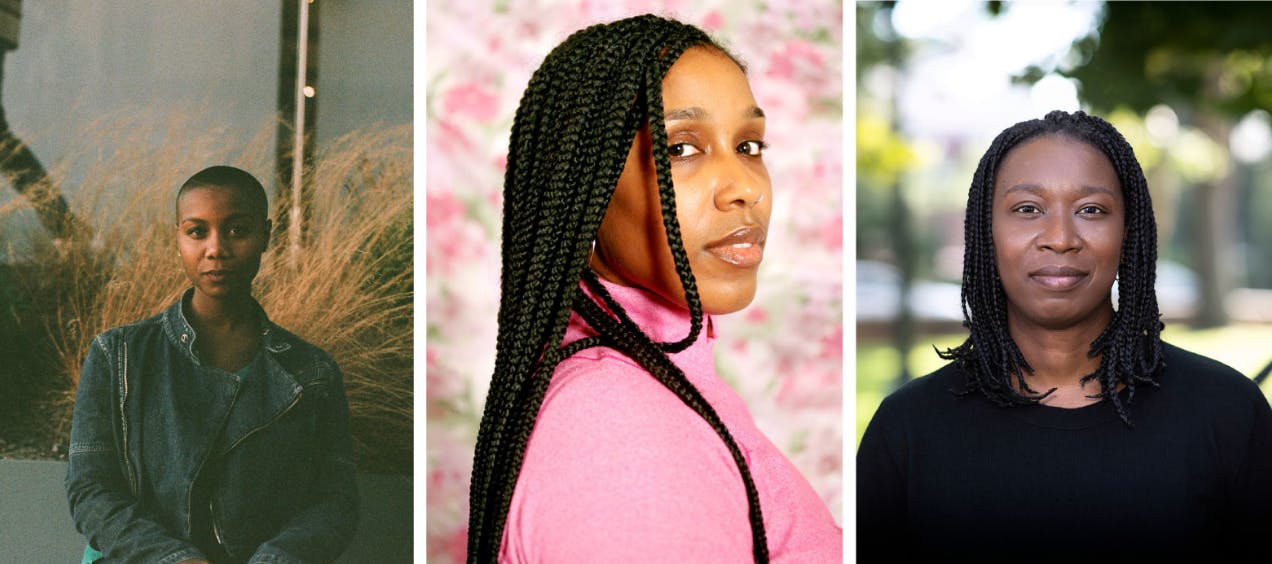Holding (Space for) Nippy: E. Jane, Ja’Tovia Gary, and Claudrena Harold in Conversation


I.
Though Whitney's talents, in my view, are singular, her achievements are singular, I find myself increasingly drawn to Whitney Houston as a cultural archivist, a beneficiary of the opportunities that were created by the graceful grind of Cissy Houston, Dionne Warwick, and New Hope Baptist Church.
When you look at her career, it's so interesting to think about the ways in which she shunned this idea of individual exceptionalism, and that she always rooted herself in community. Through her recordings, through the film soundtracks, and especially through the live performances, she often forced for us a gathering space where we all could bear witness to what Donny Hathaway called "the pool of Black genius." Consider the soundtrack Waiting to Exhale. She could have easily made that about her, about Whitney, and of course, we know that she would sell a gazillion units. That's what Clive Davis wanted her to do, but in turn, she turned this [soundtrack] into almost a sonic analog to Toni Cade Bambara's Black Woman's Anthology (1970). She said, "No, I'm gonna bring the community in." I was looking at her liner notes for that soundtrack. She said, "Wishes do come true." When I think about Whitney as an artist, I think her wish was simple, and that was to be in community. She refused to walk alone, whether she was sharing the stage with Kelly Price and Faith Evans, mentoring Brandy and Monica, or simply singing background vocals for her friends, BeBe and CeCe Winans, rooted in community.”
—Dr. Claudrena Harold
II.
“This moment from the archive shows me so much, and in this particular instance, we're seeing Rosie O'Donnell show the audience members of her show that Whitney is indeed present backstage because she's being captured on CCTV footage. While this moment was a gag or meant to be a joke by O'Donnell, it reflects a general culture around the consumption of Whitney as a pop star.
Whitney's audience, label, colleagues, including her family, normalized Whitney's constant surveillance and why that is somewhat normal for a pop star. Never have I seen one be portrayed as a guarded prisoner, monitored through closed-circuit television, which, for me, rubs the policing of the Black body up against the surveillance of the pop star. In general, the surveillance of Houston falls under what Simone Brown describes as, ‘Matters where blackness meets surveillance and then reveals the ongoing racisms of unfinished emancipation.’"
—E. Jane
III.
“I’ve been gathering all these amazing photos of [Whitney] and Robyn [Crawford] because I think it is just staggering to see them together. They're both so beautiful. They have such presence. Robyn is fine and we know Whitney is gorgeous, right? If I would've seen these two, something would have shifted for my little self, watching these two women.
I often think about respectability and this kind of foreclosure on her sexuality because of her dream. Robyn talks about this in the book—how they were really good friends and they dated for a while. They were straight-up lovers for a while. All of the speculation is confirmed in Robyn's text, and I really think that beyond the confirmation of their love for one another, both in the friendship realm and in the romantic space, and the respect for each other as friends, I really feel like her text was this kind of reparative, restorative gesture. While reading it, I would just feel like, “Wow, this woman is really doing her friend justice.” She's reminding us of her friend, who her friend was, 'cause we've forgotten. Many people have forgotten. I think through that often—the powerful friendship between these two and how Robyn had her back. … I think about these two. I think about the possibilities of what it would mean for them to exist in a world where there wasn't a kind of queer antagonism––where the pressure from the family, pressure from the record label, pressure from society was not hounding them. What would their lives have looked like? Would we still have her here? A question.”
—Ja’Tovia Gary
Read A Song For You by Robyn Crawford
For more on this program, you can read the full transcript and watch the entire video.